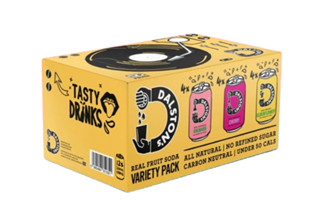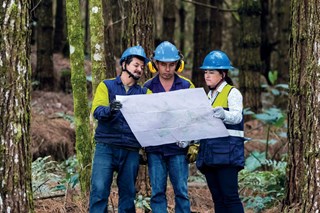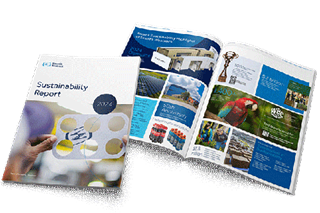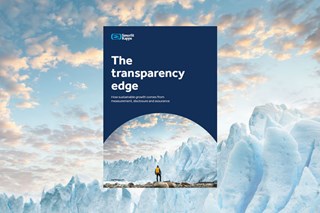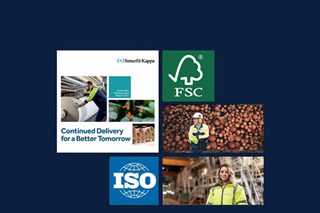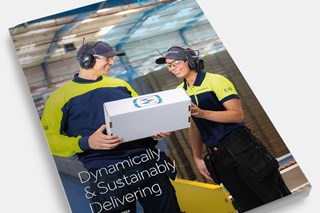What is packaging EPR and how will it affect UK businesses in 2025?

With 78% of consumers considering sustainability an important factor when shopping (USwitch), it’s clear that green practices are no longer a nice-to-have. What’s more, sustainability isn’t just about consumer appeal - it’s now a legal requirement. Updates to the UK’s packaging waste regulations mean businesses must comply with packaging Extended Producer Responsibility (EPR). Falling short of these new regulations isn’t just a missed opportunity - it could lead to significant consequences.
Businesses that fail to meet packaging EPR requirements may face financial penalties, with fines scaled according to non-compliance severity and the organisation's size. Civil sanctions, such as enforcement or stop notices, may also be issued, and in more serious cases, non-compliance could result in criminal prosecution. Increased audits and inspections are also likely as authorities work to ensure businesses are fulfilling their obligations.
In this blog, we explore what packaging EPR is, how it impacts businesses, and the importance of support from a sustainable packaging partner in navigating these changes.
- What is packaging EPR?
- How will packaging EPR regulations affect businesses?
- Packaging EPR UK timeline and fees
- Packaging EPR fees: What will it cost?
- What should your business do now?
- How a sustainable packaging partner can help?
- Perfecting packaging waste regulations
What is packaging EPR?
Packaging EPR (Extended Producer Responsibility) aims to reduce environmental impact by holding producers accountable for the entire lifecycle of their packaging, from design to disposal. The regulation shifts the responsibility of household packaging waste management onto producers, requiring them to be responsible for or pay costs associated with its collection, sorting, and disposal.

As part of the new EPR legislation, the Packaging Waste Recovery Notes (PRNs) system accounts for packaging that ends up in business waste streams and serves as evidence that producers are meeting their recycling obligations. Issued by accredited waste reprocessors and exporters, PRNs support the reprocessing of packaging waste. Unlike PRNs, which manage reprocessing, EPR introduces a fixed-fee structure (which is reviewed annually) to cover the collection, sorting and disposal of packaging materials, helping businesses understand the associated costs per tonne for the varying packaging materials.
To help keep costs at their lowest, companies should focus on using recyclable packaging.
How will packaging EPR regulations affect businesses?
As packaging EPR regulations have now come into effect, businesses face additional legal responsibilities in managing packaging waste. At the heart of these regulations is accountability. Businesses are expected to take full responsibility for ensuring their packaging can be recycled. That means designing with recyclability in mind and registering and reporting on their packaging to show they’re managing it sustainably. It’s all part of a bigger push towards a greener, more responsible future for all of us.

This shift brings new costs as companies must cover the full lifecycle of their packaging, from collection to disposal. Additionally, businesses must track and report detailed packaging data, which may require operational changes and adopting more sustainable materials to meet recyclability standards. The Recyclability Assessment Methodology (RAM) will play an important role under EPR, helping producers understand how well their household primary and shipment packaging works within the UK’s recycling system. It looks at how easily packaging can be collected, sorted, and reprocessed, and the results will influence the level of modulation applied to packaging EPR fees. In short, RAM will directly impact compliance costs starting in July 2026, so businesses will want to keep a close eye on it.
Non-compliance could result in penalties, making it essential for businesses to prepare early and explore cost-effective, sustainable packaging solutions.
This marks a significant shift in how packaging is sourced, tracked and reported for many businesses. Understanding and implementing packaging EPR is now a critical business responsibility, ensuring companies comply with the legislation.
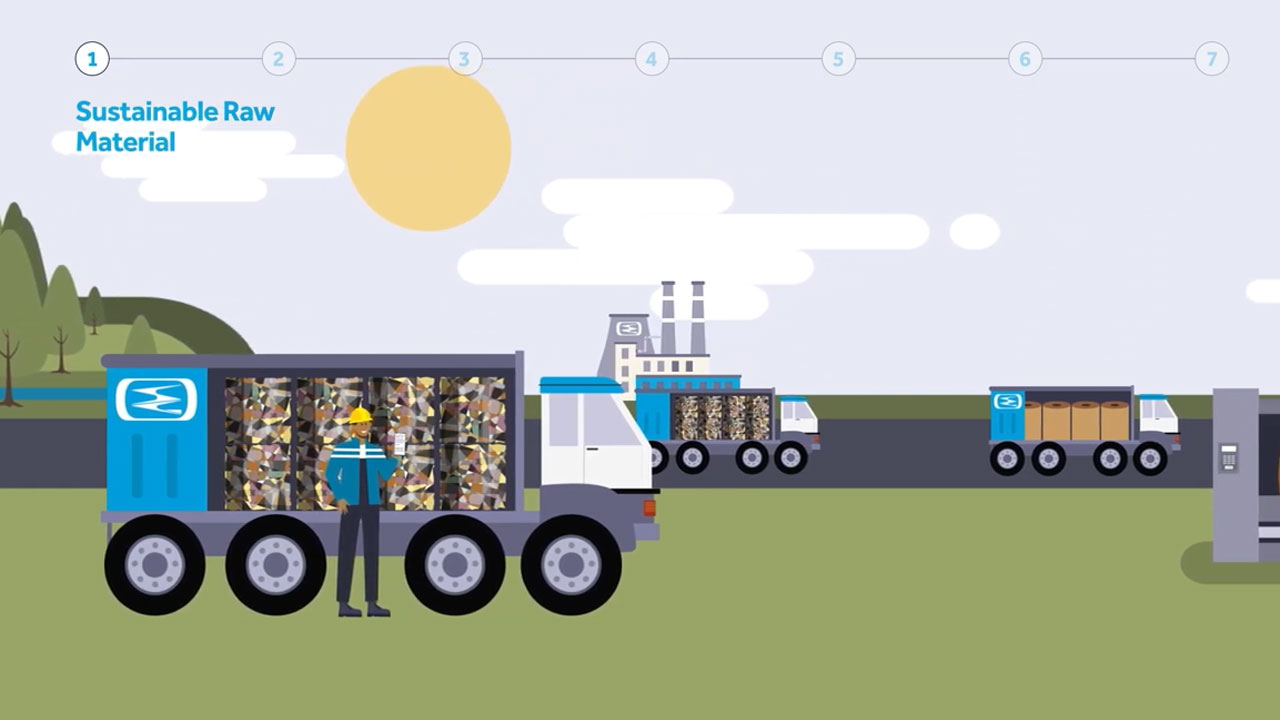
Packaging EPR UK timeline and fees
The UK’s packaging EPR regulations are now in effect, and all obligated businesses should have registered by 1st April 2025. If your business meets the packaging EPR thresholds and has not yet registered, immediate action is required to avoid penalties.
Businesses are legally required to comply with packaging EPR if they meet the following criteria:
- Large producers: Annual turnover of £2 million+ and handling 50+ tonnes of packaging per year - must register, report packaging data, and pay EPR fees.
- Small producers: Annual turnover of £1 million+ and handling 25+ tonnes of packaging per year - must register and report but are not required to pay fees.
Affected businesses include:
- Brand owners
- Online marketplaces selling packaged goods for non-UK businesses to UK consumers
- Companies supplying unfilled packaging to smaller businesses
- Businesses that hire or lend reusable packaging
Packaging EPR fees: What will it cost?
Unlike the PRN system, packaging nEPR has a fixed-fee structure (which is reviewed annually), meaning businesses will pay based on the materials used in their packaging. The more recyclable your packaging is, the lower your fees will be, making sustainable packaging choices essential.
Estimated packaging EPR base fees per tonne (from July 2025):
- Paper or board – £196
- Glass – £192
- Wood – £280
- Plastic – £423
What should your business do now?
If your business is liable under packaging EPR but has not yet registered, you must register online immediately via the DEFRA registration portal. Failure to comply could result in enforcement action. You can find a direct link to the portal here.
Smurfit Westrock’s UK Sustainability Lead, Lianne Pemberton, is encouraging businesses to also sign up to the new PackUK newsletter, launching in mid-April. “It’s a great way for businesses to stay up to date with key announcements on the packaging Extended Producer Responsibility (EPR) scheme,” she says, “along with valuable insights and practical guidance to help businesses stay on top of their obligations.” You can subscribe to the newsletter using this link.
How a sustainable packaging partner can help
When running a business, there’s a lot to think about, and adding packaging EPR compliance into the mix can feel daunting. That’s why working with the right sustainable packaging partner is important - a team that understands packaging EPR and what it means for your packaging and your business. By choosing a sustainable packaging partner that understands EPR compliance, you can ensure your packaging meets legal requirements and is optimised to reduce waste management fees by using materials that are easier to recycle, along with packaging transparency for ease of packaging reporting.

Smurfit Westrock has implemented several proactive measures to support businesses with packaging EPR regulations - helping them report packaging data accurately, manage costs, and ensure their packaging meets the required standards. “Through innovative design and smart material choices, we’ve helped customers like Cappellaro Fruits cut carbon emissions while staying cost-efficient,” says Lianne Pemberton, UK Sustainability Lead at Smurfit Westrock. “By switching to a corrugated cardboard solution, they reduced CO₂ emissions by 63 tonnes a year and eliminated 120,000 non-biodegradable containers - without increasing packaging costs.”
Internally, the Smurfit Westrock team has also launched campaigns to educate colleagues on the benefits of packaging EPR compliance, including cost savings and its contribution to a healthier environment.
Beyond improved financial forecasting, EPR packaging compliance showcases corporate responsibility and reinforces your business’s dedication to sustainability.
Perfecting packaging waste regulations
Packaging EPR is a step towards a more sustainable, circular economy, which lies at the heart of Smurfit Westrock's business and operations. EPR aligns with Smurfit Westrock’s commitment to sustainability and environmental responsibility by encouraging businesses to reduce packaging waste and use more recyclable materials.

Understanding and complying with packaging EPR regulations can be complex, from reporting requirements to choosing compliant packaging. We recommend turning to Valpak, our trusted provider, for expert guidance on what packaging EPR means for your business and how to adapt. Watch their informative video here to learn more about EPR compliance and what steps your business needs to take.
Register for packaging EPR online through DEFRA’s official portal here and reach out to us directly to see how we can support you with packaging that’s not only better for the environment but also better for your business. You can also find out more about EPR legislation from our recommended provider, Valpak.


